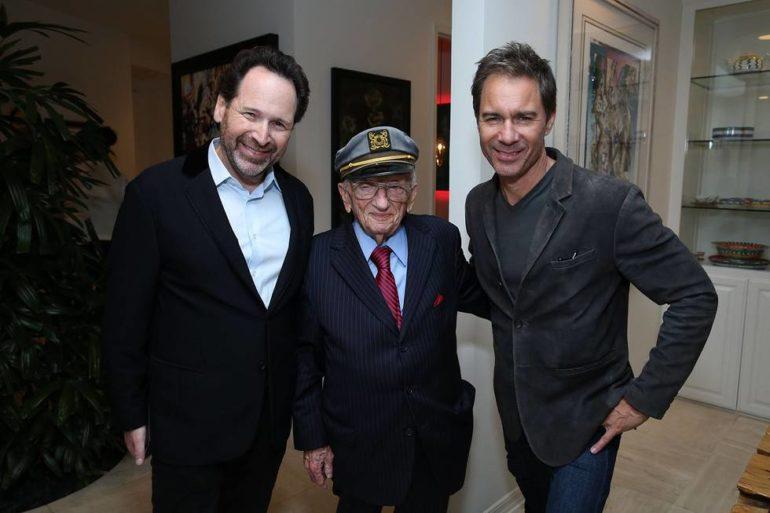‘Prosecuting Evil’ Director Barry Avrich on the Race to Complete Nuremburg Trial Doc
By Jazz Tangcay
LOS ANGELES (Variety.com) – Ben Ferencz is a name you should know. He should be a known hero, a Nobel Peace Prize recipient. But unless you’ve seen a particular “60 Minutes” interview or “Prosecuting Evil” on Netflix, you may never have heard of him.
It was while watching the “60 Minutes” interview that director Barry Avrich heard about Ferencz’s story, which inspired him to make “Prosecuting Evil.” Ferencz is 99 years old (100, if you ask him in person), and the only surviving Nuremberg Trial prosecutor. He has seen the worst of humankind’s history and is still alive to tell his story.
Avrich sought out Ferencz and sat down with him. His only goal was to finish his documentary so Ferencz would have a chance to see it before he died. The race was on to film, research and complete “Prosecuting Evil.”
Avrich’s documentary follows the life of Ferencz, a Hungarian immigrant who, after escaping the persecution of Jews in Hungary with his parents, grew up in New York and went on to study war crimes at Harvard Law. It was there that Ferencz was led to the Nazi camps to collect evidence for what would become the Nuremberg Trials. “Prosecuting Evil” follows his fascinating and lifelong quest for justice for victims of crimes against humanity.
Avrich sits down with Ferencz who, even at 99, is quite lucid. “It was a monstrous task because you’re dealing with a man’s life who is near 100,” Avrich said. “You’re looking at his journey from Eastern Europe to Ellis Island and all of that, and then you’re looking at World War II and the Holocaust.”
Not only did Avrich have Ferencz’s story to tell, but he also had hundreds of hours of stock footage to pore through — and he wanted to find unique footage. “How do I make this way more personal and more poignant versus the footage that people have seen since the late ’40s? We were very specific in trying to find footage like the Einsatzgruppen and rare footage of these killing squads which we found. We looked for footage of prisoners that people hadn’t seen before.” Since Avrich was telling Ferencz’s story, he looked through footage of the trial. “Finding that footage of Ben giving his great address and seeing the defendants on film was important to me too. It was such a huge job. Every frame within 92 minutes had to be poignant and important.”
While some documentarians struggle with footage, Avrich had the opposite issue: an abundance of footage, plus his interview with Ferencz. The director spent over eight hours listening to the prosecutor’s firsthand accounts. In editing, Avrich found he had three stories to tell within 92 minutes. “It was the toughest I’ve ever edited and painful in terms of the choices we’ve had.”
With editing his story such a large challenge, Avrich wanted to keep everything else in crafts simple: no recreations, simple music. Avrich discussed creating one scene in post-production. “We took all of the photos of the defendants, and we start tight on one picture and we pull out to reveal this mosaic of photos. We had a moment like that which was inspired by ‘The Wizard of Lies.’ They had that wonderful shot and that inspired that moment.” He continues, “With sound design, I didn’t want to overdo it with people screaming and yelling. It’s just very simple. The film has to reflect Ben’s life. He is a simple and humble man filled with humility. Anything splashy would not have been that guy. I do look at this film as this year’s ‘RBG.’”

